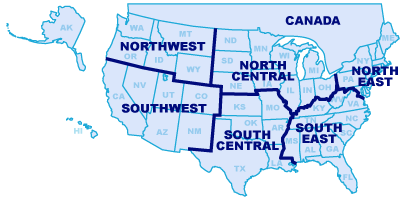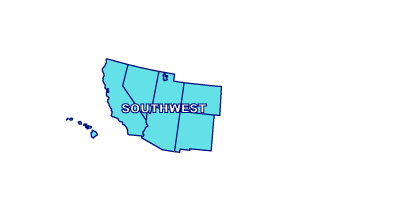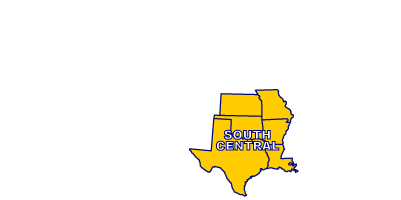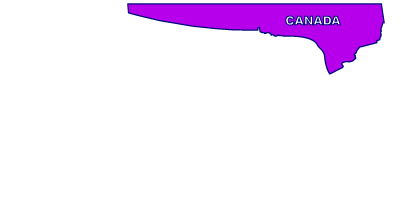Christian Colleges for Political Science
By clicking on the "Continue" and/or "Submit Request" button(s) on this form I am providing my electronic/ESIGN signature and agreement of expressed written consent to permit The Christian Connector, Inc. and the schools selected, and the parties calling/texting on behalf of the schools, to contact me at the phone number I provide for marketing purposes, including through the use of automated technology, SMS/MMS messages, and prerecorded/artificial/AI generated voice calls about education related opportunities. Message and data rates may apply. I understand that my consent is not required to obtain any goods or services from The Christian Connector or any of the colleges/universities. I acknowledge that I may select as many, or as few, schools as I wish to receive information from. I agree to the terms and privacy policy as well. I understand I can call 800-667-0600 to request information without providing any phone number.
Click on the map below to bring schools in the selected region to the top of the list:








Articles on Political Science:
Christian College Political Science Majors
Article by Rachelle Wiggins
“God instituted government to establish ordered and peaceful social space where not only is judgement carried out, but good is recognized and encouraged…[It] has been instituted by God not only for the good of humanity but also for the glory of his own name.” ~Michael Oh, PhD
Political science is defined as “the study of power applied for public purposes.” We need only wade into shallow conversations about healthcare, the environment, education, homeland security or immigration to realize how passionately many of us feel about these political “hot topics!” A major in political science not only dabbles in these political waters, but dives headlong into a deep understanding of political structures, processes and policies that affect our everyday lives. It delves into the inner workings of American government but also compares various governmental forms and political theories. This broad, liberal arts degree helps prepare students for a wide range of careers in anything from law to public service to communications to business.
If you are fascinated by current events, enjoy watching CNN and thinking about all-things governmental, then this major may be a great choice for you. In addition to a desire to actively engage in the political system, there are other important traits necessary for success. One of these is strong critical thinking skills since you will constantly be dealing with complex information that must be synchronized into pragmatic, real-world solutions. In addition, good communication is a must, including written, oral and active listening skills. As a political science major, you will engage in discussion and debate about controversial topics and it’s important to back up your convincing arguments with clearly stated, factual arguments.
Christian College for Political Science
A political science major is an interdisciplinary degree, meaning you will take a diverse breath of courses in many subject areas. You may have opportunities to study abroad, participate in an internship and will likely be asked to write a senior thesis on a topic that interests you. Courses you can expect to take include:
- U.S. Political Systems
- Comparative Systems
- International Relations
- Elements of Political Theory
Students who major in political science land in many different career settings—some serve in local, state or national government, others in the nonprofit sector or in business-related fields. Others continue with ongoing education. Some of the more common career outcomes range from:
- Campaign worker/political consultants who contribute to a political campaign in areas such as budget, advertising, fundraising, strategy and media response.
- Lobbyists. Activists representing a specific group/organization who seek to persuade government members to enact legislation beneficial to the group they represent.
- Public affairs specialists who act as a liason between an organization and the public, seeking to create and maintain a favorable impression through press and social media.
- State legislators. Officials elected by the public for the sake of proposing, passing and amending laws beneficial to those they represent.
- Analysts (of research, public opinion or policy) who gather data, track political trends and currents, evaluate, analyze and offer recommendations to candidates, parties or elected officials.
- Customs/immigration officers who work to protect American borders and enforce trade, drug trafficking or immigration laws in order to keep our country safe.
If your mind comes alive at the thought of efficiently administering a public bureaucracy or you dream of investing your energy in international relations or the creation of effective political platforms, then maybe God wants to use you to impact the world through a Christian College political science major!
A future in Political Science
By Jennifer Bailey
Politics is everywhere. Believe it or not, it affects the very air we breathe, the schools we attend, the career paths we choose, the communities we strive to live in and, of course, the taxes we pay. If you choose to major in political science, you will learn the principles behind the decisions that affect every aspect of our lives.
When trying to determine the best career direction for yourself, it is always good to think about what interests and excites you. Do you desire to understand what is justice? How about what is human nature? Or what is virtue? Consider what is the relationship between politics and philosophy? What is the right way to live? Is there a right way to live? What is the ideal relationship between religion and politics? Do you want to be a part of change in our society? What kind of change?
Whether they're conservative or liberal, cynical or idealistic, one common trait among political science majors is their passion for politics. If you want to be active in the political system, then a political science major is a great way to get started.
Like government majors, political science majors learn the practical understandings of democracy. They study the causes as well as the consequences of authoritarian and revolutionary political regimes. They also analyze constitutional orders, political parties, electoral systems, government bureaucracies, judiciaries, militaries and how other institutions of governance affect outcomes in the political realm.
The field of political science is generally divided into "subfields." These include; American Politics, Comparative Politics, International Relations and Political Theory/Public Law as well as Political Analysis.
Getting a degree in political science includes taking classes in political philosophy, political theory, comparative government and politics, political parties, interest groups, international relations, public opinion, political research methods and studies of historical governments and their politics.
To name a few of the key things you will learn, in addition to all of the above, is writing development skills, analytical and critical thinking, communication skills and research development. Majoring in political science will prepare you for jobs in and out of government including law, political science, history and public policy.
The outlook in this field is strong and growing and jobs exist at the federal, state and local levels. Great positions are available in nonprofit organizations and the business sector in addition to local, state and federal agencies of all types.
There are many internship opportunities available to give you great hands-on experience and gain good insights for furthering your long-term career goals. Some areas for internships might include: Communications, Media, Congressional Offices such as your local and national offices of U.S. Senators or Congressmen/women, Education such as Curatorial, Research, Historical, Public Affairs, Naval Historical Center or perhaps you’d enjoy interning for a Government Consulting Firm or nonprofit organization, a lobbying firm, a Political Action Committee like the American Israel Public Affairs Committee or even a Think Tank like the Heritage Foundation.
Once a degree in political science is obtained, you can find long term employment in many diverse areas such as: Campaign Worker, Lobbyist, Political Consultant, Policy Analyst, Urban Planner, Intelligence Officer, Fundraiser, Program Manager, Volunteer Coordinator, Grant Writer, Journalist, Immigration Agent, Paralegal/Legal Assistant, Regulatory Specialist, Public Affairs Specialist, Research Assistant or, with additional schooling, an attorney.